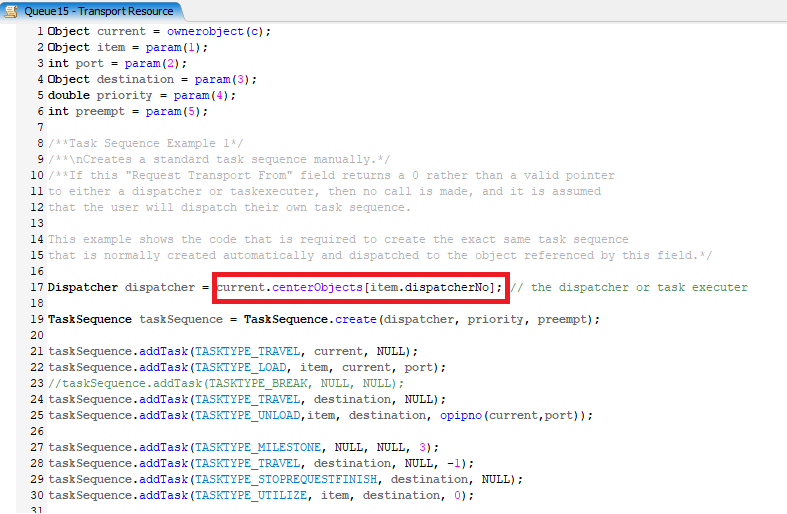shiftsample.fsmAttached is a model that simulates an issue that I have.
The scenario that I want to simulate is there are operators that have various skillsets, some single skill and others multi-skills. Each dispatcher represents a particular skill and are connected to operators with that skillset. All queues are connected to all dispatchers so that when a job arrive it will be sent to appropriate dispatcher base on skillset requirement. In the model a label "dispatcherNo" is used to relate to the skillset needed by the job(flowitem). In case when a shift ended the job will be passed on to the next shift to be continued by another operator with same skillset (that is connected to the same dispatcher). The issue I have is getting the right skillset operator to continue the job.
Attached model simulates the issue at time 8.45am the flowitem at processor needed an operator from "dispatcher_skillB" but after shift change an operator from "dispatcher_skillA" is summoned instead.
Any advice is appreciated.

